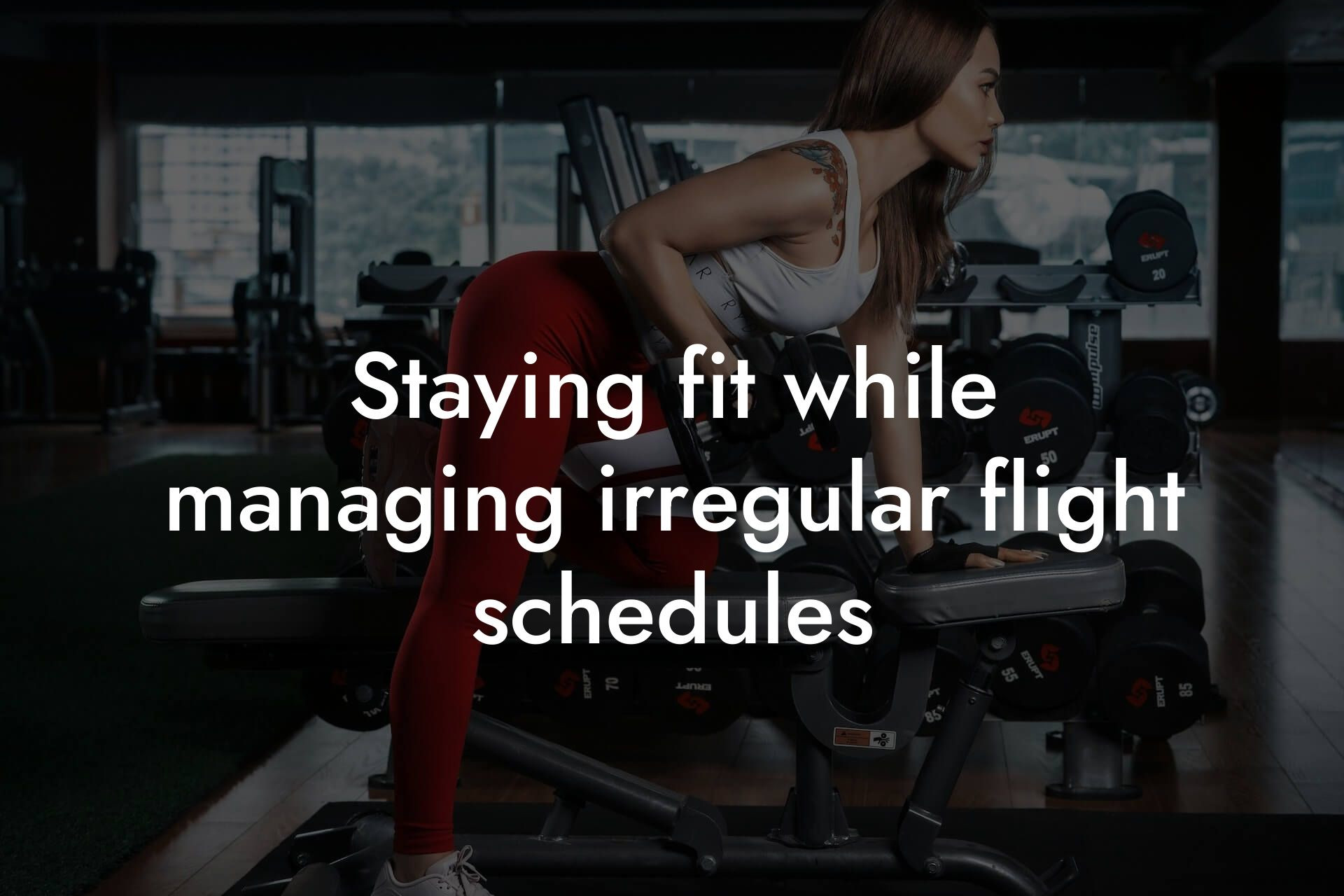As a high-earning professional, you understand the importance of maintaining a healthy physique, body fat percentage, and overall physical appearance. However, frequent flying can take a toll on your bone density, which can have long-term consequences on your overall health. At Tano Performance Group, we're committed to providing you with the information and tools you need to take control of your physical health, including maintaining strong bones while flying frequently.
Table of Contents
The Risks of Frequent Flying on Bone Density
Frequent flying can lead to a range of health risks, including bone loss and decreased bone density. This is due to several factors, including:
- Prolonged periods of immobility, which can lead to muscle atrophy and bone loss
- Increased radiation exposure from flying, which can damage bone cells
- Disrupted sleep patterns, which can affect hormone regulation and bone health
- Poor air quality and low oxygen levels, which can impact bone health
Additionally, frequent flying can also lead to a range of lifestyle factors that can negatively impact bone density, including:
- Increased consumption of processed and high-sodium foods
- Reduced physical activity due to busy schedules
- Increased stress levels, which can lead to inflammation and bone loss
Understanding Bone Density and Osteoporosis
Bone density refers to the amount of minerals, such as calcium and phosphorus, in your bones. Peak bone density is typically reached in early adulthood, and from then on, bone density naturally decreases with age. Osteoporosis is a condition characterized by brittle and porous bones, which can increase the risk of fractures and osteoporotic-related diseases.
As a high-earning professional, it's essential to understand the risks of osteoporosis and take proactive steps to maintain strong bones. This includes:
- Getting regular bone density scans, such as DEXA scans, to monitor bone health
- Maintaining a balanced diet rich in calcium and vitamin D
- Engaging in regular exercise, including weight-bearing and resistance training
- Managing stress levels and getting adequate sleep
Nutrition and Bone Health
A balanced diet is essential for maintaining strong bones. As a frequent flyer, it can be challenging to maintain a healthy diet, but there are several key nutrients to focus on:
- Calcium: essential for bone growth and density, with a recommended daily intake of 1,000-1,200mg
- Vitamin D: crucial for calcium absorption and bone health, with a recommended daily intake of 600-800 IU
- Protein: important for muscle mass and bone health, with a recommended daily intake of 0.8-1 gram per kilogram of body weight
- Omega-3 fatty acids: anti-inflammatory properties can help reduce bone loss
In addition to focusing on these key nutrients, it's also important to limit or avoid:
- Sodium-rich foods, which can increase calcium excretion
- Processed and high-sugar foods, which can lead to inflammation and bone loss
- Alcohol and caffeine, which can interfere with calcium absorption
Exercise and Bone Health
Regular exercise is essential for maintaining strong bones, particularly weight-bearing and resistance training. As a frequent flyer, it can be challenging to fit in regular exercise, but there are several exercises you can do on the go:
- Bodyweight exercises, such as squats, lunges, and push-ups
- Resistance band exercises, which can be easily packed in your luggage
- High-intensity interval training (HIIT), which can be done in short bursts
In addition to exercise, it's also important to incorporate activities that promote bone health, such as:
- Yoga or Pilates, which can improve flexibility and balance
- Walking or jogging, which can help maintain bone density
- Swimming or cycling, which can provide low-impact exercise
Managing Stress and Sleep
Stress and sleep are critical components of overall health, including bone health. As a frequent flyer, it can be challenging to manage stress and get adequate sleep, but there are several strategies you can use:
- Meditation and deep breathing exercises, which can help reduce stress
- Yoga or tai chi, which can promote relaxation and improve sleep
- Melatonin supplements, which can help regulate sleep patterns
- Aiming for 7-9 hours of sleep per night, and establishing a consistent sleep schedule
Supplements and Bone Health
In addition to a balanced diet and regular exercise, supplements can play a critical role in maintaining strong bones. Some key supplements to consider include:
- Calcium and vitamin D supplements, which can help fill nutritional gaps
- Omega-3 fatty acid supplements, which can help reduce inflammation
- Probiotics, which can promote gut health and calcium absorption
- Bone broth or collagen supplements, which can provide essential amino acids for bone health
DEXA Scans and Bone Density Testing
Regular bone density testing is essential for monitoring bone health and detecting any potential issues early on. At Tano Performance Group, we offer comprehensive DEXA scans, which can provide a detailed analysis of your bone density and body composition.
Our DEXA scans can help you:
- Monitor bone density and detect any potential issues early on
- Track changes in bone density over time
- Develop a personalized exercise and nutrition plan to improve bone health
- Optimize your overall physical performance and physique
Maintaining strong bones is critical for overall health and physical performance, particularly for high-earning professionals who frequent fly. By understanding the risks of frequent flying on bone density, prioritizing nutrition and exercise, managing stress and sleep, and incorporating supplements and bone density testing, you can take control of your bone health and optimize your overall physical performance.
At Tano Performance Group, we're committed to providing you with the tools and information you need to take your physical health to the next level. Contact us today to schedule a comprehensive DEXA scan and take the first step towards maintaining strong bones and optimizing your physical performance.
Frequently Asked Questions
What is bone density, and why is it important for frequent flyers?
Bone density refers to the measure of how much calcium and other minerals are present in your bones. It's essential for frequent flyers to maintain healthy bone density because prolonged periods of immobility during flights can lead to bone loss and increased risk of osteoporosis. Strong bones are crucial for overall health, mobility, and preventing fractures.
How does frequent flying affect bone density?
Frequent flying can negatively impact bone density due to the combination of factors such as prolonged immobility, reduced muscle activity, and altered hormone levels. This can lead to a decrease in bone density, particularly in the hips, spine, and legs.
What are the risks of low bone density for frequent flyers?
Frequent flyers with low bone density are at a higher risk of osteoporosis, fractures, and mobility issues. This can significantly impact their quality of life, making it essential to take proactive measures to maintain healthy bone density.
Can exercise really help maintain bone density while flying?
Yes, exercise plays a crucial role in maintaining bone density, even for frequent flyers. Regular exercise, especially weight-bearing and resistance exercises, can help stimulate bone growth and density. It's essential to incorporate exercises that target the hips, spine, and legs, which are most affected by flying.
What types of exercises are best for maintaining bone density while flying?
Weight-bearing exercises such as walking, running, and jumping are excellent for maintaining bone density. Resistance exercises like squats, lunges, and leg press can also help. Additionally, incorporating exercises that target the core and back muscles, such as planks and rows, can help improve posture and reduce the risk of spinal fractures.
How often should I exercise to maintain bone density while flying?
Aim to exercise at least 3-4 times a week, with a minimum of 30 minutes per session. It's essential to incorporate a mix of cardio, strength training, and flexibility exercises to maintain overall fitness and bone health.
Can I exercise during flights to maintain bone density?
While it's challenging to engage in intense exercise during flights, you can still do some simple exercises to help maintain bone density. Try doing seat stretches, ankle rotations, and toe taps to keep your muscles active and improve circulation.
What about calcium and vitamin D supplements for bone density?
Calcium and vitamin D supplements can be beneficial for maintaining bone density, especially for frequent flyers. However, it's essential to consult with a healthcare professional to determine the appropriate dosage and ensure you're not exceeding the recommended daily intake.
How much calcium do I need to take to maintain bone density?
The recommended daily intake of calcium varies by age, but most adults need around 1,000-1,200 mg per day. Consult with a healthcare professional to determine the appropriate dosage for your individual needs.
What role does vitamin D play in maintaining bone density?
Vitamin D is essential for calcium absorption and bone health. Frequent flyers may be at risk of vitamin D deficiency due to limited sunlight exposure during flights. Aim to get at least 600-800 IU of vitamin D per day through supplements, diet, or sun exposure.
Can I get enough calcium and vitamin D from my diet alone?
While it's possible to get some calcium and vitamin D from your diet, it can be challenging to meet the recommended daily intake through food alone. Consult with a registered dietitian or healthcare professional to determine the best approach for your individual needs.
What foods are rich in calcium and vitamin D?
Foods rich in calcium include dairy products, leafy greens, fortified plant-based milk, and calcium-set tofu. Vitamin D-rich foods include fatty fish, fortified dairy products, and mushrooms. Incorporate these foods into your diet to support bone health.
How can I reduce the risk of osteoporosis while flying?
To reduce the risk of osteoporosis, maintain a healthy diet rich in calcium and vitamin D, exercise regularly, and avoid smoking and excessive alcohol consumption. Additionally, consider incorporating bone-density-boosting supplements like omega-3 fatty acids and vitamin K.
Can I maintain bone density while flying if I have a pre-existing condition?
Yes, it's still possible to maintain bone density while flying even with a pre-existing condition. Consult with your healthcare professional to develop a personalized exercise and nutrition plan that takes into account your individual needs and health status.
How can I track my bone density while flying?
Consider getting a bone density scan (DXA) every 2-3 years to track your bone health. You can also monitor your overall health and fitness through regular check-ins with your healthcare professional and tracking your exercise and nutrition habits.
What are some tips for staying active during layovers?
Take advantage of layovers to get some exercise. Try doing a quick workout in the airport gym, taking a short walk around the terminal, or doing some stretching exercises in your seat. Every bit of activity counts towards maintaining bone density.
How can I prioritize self-care during flights to support bone density?
Prioritize self-care during flights by staying hydrated, getting enough sleep, and managing stress. Bring a travel pillow, wear comfortable clothing, and consider using a compression sleeve to improve circulation.
Can I maintain bone density while flying if I have a busy schedule?
Yes, it's possible to maintain bone density even with a busy schedule. Prioritize exercise and nutrition, and try to incorporate small amounts of activity into your daily routine, such as taking the stairs instead of the elevator or doing a quick workout during your lunch break.
What are some common myths about bone density and flying?
One common myth is that bone density loss is inevitable with age. However, with regular exercise, a healthy diet, and proper nutrition, it's possible to maintain strong bones even as you age. Another myth is that flying has no impact on bone density, which is not true. Prolonged immobility during flights can negatively affect bone health.
How can I get support and motivation to maintain bone density while flying?
Join a fitness community or find a workout buddy to stay motivated and accountable. Consider consulting with a registered dietitian or healthcare professional for personalized guidance and support.
What are some additional resources for maintaining bone density while flying?
Consult with your healthcare professional, registered dietitian, or a fitness expert for personalized guidance. You can also explore online resources, such as fitness apps, blogs, and websites, that provide tips and advice on maintaining bone density while flying.
How can I prioritize my overall health and wellness while flying?
Prioritize your overall health and wellness by getting enough sleep, staying hydrated, managing stress, and maintaining a healthy diet. Regular exercise, stretching, and movement can also help reduce the risk of chronic diseases and improve overall health.
Here are some related articles you might love...
- The benefits of DEXA scans for aviation professionals
- How aviation professionals can manage jet lag and fitness
- Staying fit while managing irregular flight schedules
- Balancing in-flight duties with personal fitness goals
- Nutrition strategies for staying healthy on long flights
- Managing stress and staying fit in the aviation industry
- The impact of physical health on flight safety
- The role of physical fitness in maintaining flight readiness
- Quick workouts for pilots and flight attendants during layovers
Zak Faulkner
Zak Faulkner is a leading authority in the realm of physical health and body composition analysis, with over 15 years of experience helping professionals optimise their fitness and well-being. As one the experts behind Tano Performance Group, Zak has dedicated his career to providing in-depth, science-backed insights that empower clients to elevate their physical performance and overall health.
With extensive knowledge of DEXA technology, Zak specializes in delivering comprehensive body assessments that offer precise data on body fat, muscle mass, bone density, and overall physique. His expertise enables individuals to make informed decisions and achieve their fitness goals with accuracy and confidence. Zak’s approach is rooted in a deep understanding of human physiology, combined with a passion for helping clients unlock their full potential through personalised strategies.
Over the years, Zak has earned a reputation for his commitment to excellence, precision, and client-focused service. His guidance is trusted by top professionals who demand the best when it comes to their health. Whether advising on fitness programs, nutritional strategies, or long-term wellness plans, Zak Faulkner’s insights are a valuable resource for anyone serious about taking their health and fitness to the next level.
At Tano Performance Group, Zak continues to lead our Content Team revolutionising how professionals approach their physical health, offering unparalleled expertise that drives real results.




